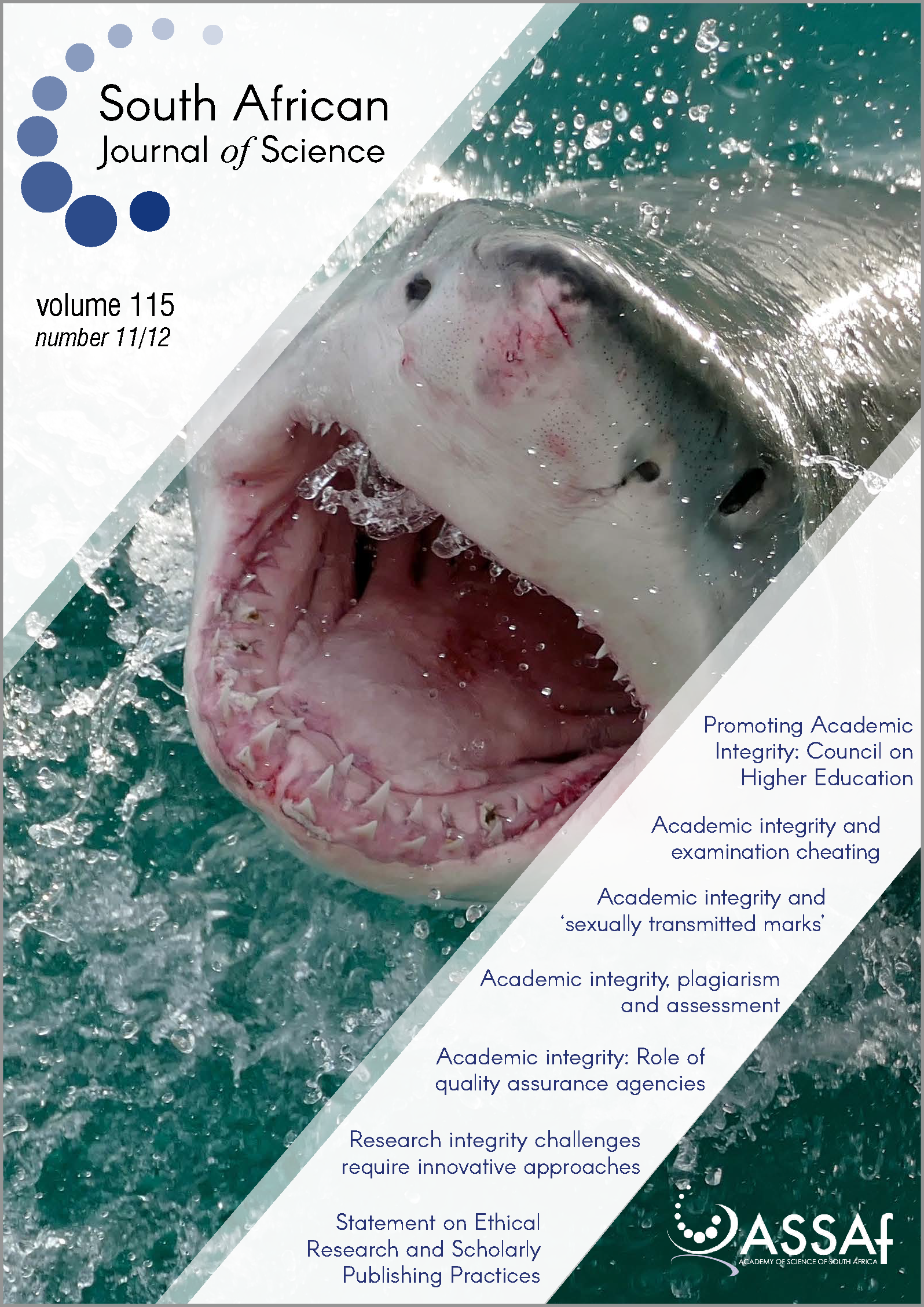Exploring the prevalence of the sexually transmitted marks phenomenon in higher education institutions
DOI:
https://doi.org/10.17159/sajs.2019/6326Keywords:
power, academic dishonesty, quality, integrity, lecturers, studentsAbstract
Countries steadfastly pursue academia as a necessary step towards socio-economic development, which places a mandate on institutions of higher learning to stir host-country economies through university deliverables. In Zimbabwe, this entails the Ministry of Higher and Tertiary Education, Science and Technology Development’s ‘doctrine’ spelling out the philosophy of ‘Education 5.0’ which emphasises teaching/learning, research, community engagement, innovation, and commercialisation of goods and services. However, academic dishonesty, such as that through ‘sexually transmitted marks’ (STM), threatens the realisation of such mandates. Although the norm is that such sexual transactions are initiated by academics, evidence shows students also initiate such relationships. Consequently, efforts to eliminate this threat to academic integrity should not only focus on lecturers, but also be extended to students. This paper contributes towards unmasking experiences of STM between male lecturers and female students, female lecturers and male students, and female students and male students, as determined from former university students and university alumni in Bulawayo. Exposing these practices allows for open consultation and adoption of good practices from similar institutions worldwide.
Significance:
- The majority of respondents all attested to having experienced STM directly or indirectly during their years of study.
- An explicit STM regulation policy targeting all actors across universities is needed.
Published
Issue
Section
License

All articles are published under a Creative Commons Attribution 4.0 International Licence
Copyright is retained by the authors. Readers are welcome to reproduce, share and adapt the content without permission provided the source is attributed.
Disclaimer: The publisher and editors accept no responsibility for statements made by the authors
How to Cite
- Abstract 1525
- PDF 638
- EPUB 212
- XML 382












.png)